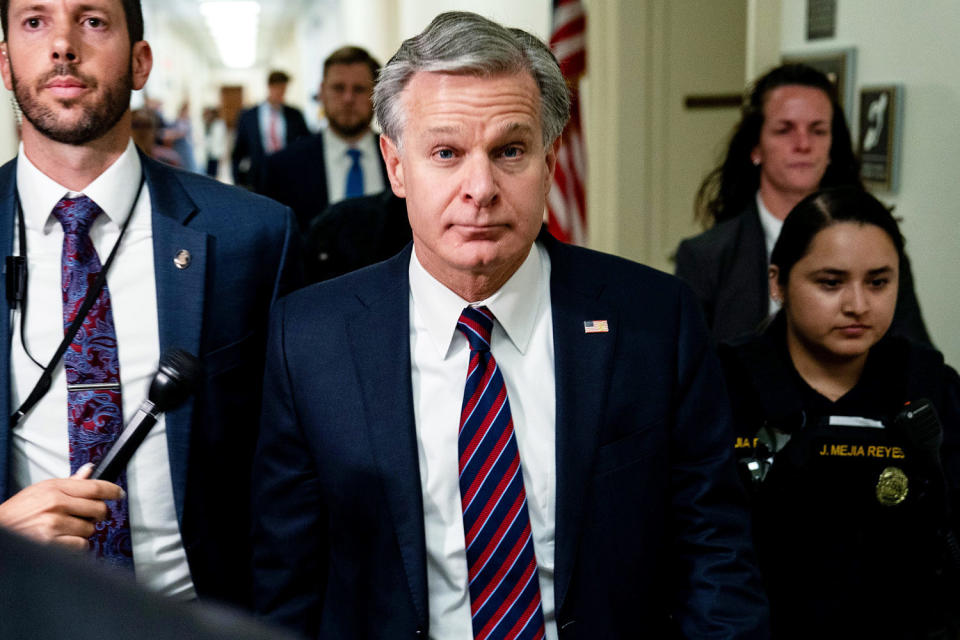The gunman who tried to assassinate former President Donald Trump may have had a firearm with a collapsible stock, making it easier for him to carry and conceal the weapon, the director of the FBI testified Wednesday.
The gunman also had researched President John F. Kennedy’s assassination, FBI Director Christopher Wray said.
On July 6, Thomas Crooks, 20, searched “how far away was Oswald from Kennedy,” Wray told a House Judiciary Committee hearing, referring to the 1963 assassination.
The collapsible stock, Wray said, would explain why witnesses did not see Crooks walking around with a weapon beforehand and why the firearm was not spotted until Crooks was already on the roof.
Crooks fired at least eight shots and also flew a drone about 200 yards away from the campaign rally’s main stage area in Butler, Pennsylvania, about two hours before it began on July 13, Wray said.
He began to shoot seconds after he noticed a local law enforcement officer on the ground had spotted him, Wray said.
The officer had gotten a boost from a colleague and pulled his head up over the roof. Crooks pointed his gun at the officer, causing him to fall, and then started shooting in Trump’s direction, Wray said.
Authorities recovered the drone in Crooks’ car, where they also found a drone controller and two explosive devices that could be remotely detonated, Wray said.
Crooks had a transmitter on him, the director said, adding that it appears the remote detonation “would not have worked.”

Eight bullet cartridges were found on the roof with the gunman’s body, he said.
Wray said Crooks had purchased a ladder, about 5-foot tall, according to a bloodied receipt that he had on him, but the ladder was not found at the scene. The FBI director said it is unclear how Crooks got onto the roof.
Crooks was a “fairly avid shooting hobbyist,” who went to a shooting range the day before the assassination attempt, “probably” with the same AR-style rifle he used at the rally, Wray said.
Lawmakers say key questions surrounding the shooting remain unanswered, particularly by Kimberly Cheatle, who resigned as director of the Secret Service on Tuesday after Republicans accused her of failing to fully cooperate with the House Oversight Committee in testimony the day before.
“We need to know play-by-play, moment-by-moment, second-by-second,” Rep. Jim Jordan, R-Ohio, told Wray on Wednesday at the start of the hearing.
The congressional committee hearings this week have begun to yield more information on the shooting and how Crooks evaded law enforcement.
On Tuesday, Pennsylvania State Police Col. Christopher Paris told the House Homeland Security Committee that officers with the Butler County Emergency Services Unit had spotted Crooks from a second-story window and left their post to search for him.


Paris said Crooks was identified as suspicious before the shooting because he was hanging around but never attempted to enter the rally. That suspicion was later heightened, Paris said, when Crooks was seen with a rangefinder.
That day, three other people had been identified as suspicious, the state police commissioner said.
Crooks was not designated as an actual threat until seconds before he opened fire, Paris said. Trump was shot in the ear, one rallygoer was killed and two others were wounded.
This article was originally published on NBCNews.com


